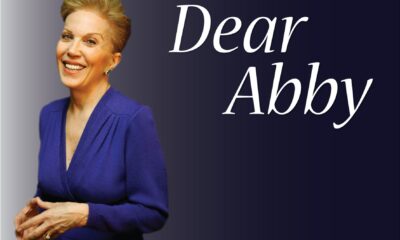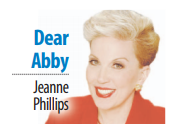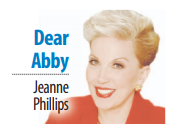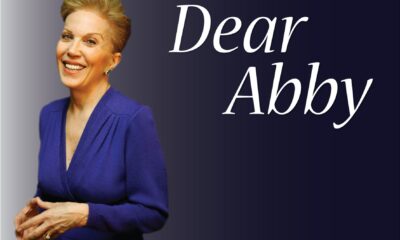Lifestyle
Estranged Father’s Actions Impact Son’s Well-Being and Relationships
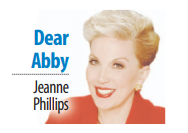
A mother is expressing deep concern over her ex-husband’s treatment of their younger son, which she believes has caused significant emotional harm. In a recent letter to advice columnist Abby, the mother detailed the estrangement between her ex-husband, Hank, and their son, Andrew. The mother described how Hank’s harsh words and high expectations have created a rift that has affected Andrew’s self-esteem and sense of worth.
Emotional Consequences of Estrangement
According to the mother, Hank’s behavior has been detrimental to Andrew. She recounted instances where Hank would tell Andrew, “You are not my son,” when Andrew failed to meet his expectations. This dynamic has contributed to the mother’s decision to leave Hank. She emphasized how painful it is to witness her son struggle for approval, stating that children should inherently feel loved and not have to prove their worthiness to their parents.
The situation escalated recently when Andrew underwent emergency surgery. The mother noted with disappointment that Hank did not reach out to check on his son’s well-being during this critical time. “It crushes me that Andrew doesn’t have a father he can count on to be there for him unconditionally,” she wrote, highlighting the emotional neglect her son has faced.
Despite attempts at therapy, the mother is searching for additional solutions to bridge the gap between Hank and Andrew. “We have tried therapy. Is there anything else that would help with the estrangement?” she asked, showcasing her desperation for a resolution.
In her response, Abby pointedly described Hank’s behavior as a poor excuse for fatherhood and indicated that the estrangement was largely initiated by Hank himself. Abby suggested that the emotional neglect Andrew has experienced might require professional help. She raised the question of whether Andrew had participated in family therapy, individual therapy, or marriage counseling for the ex-couple.
Social Challenges for a Young Boy
Another letter from a 36-year-old woman in Pakistan shared her concerns about her son’s ability to form friendships. She expressed that, like her, her seven-year-old son struggles to maintain connections, often initiating contact with peers while feeling that others are disinterested. The mother fears her son might inherit her social difficulties.
In her response, Abby reassured the mother that friendship development often occurs naturally through shared interests and activities. She encouraged the mother to explore what interests her son has and to involve him in activities that could facilitate interactions with other children.
Abby’s advice highlights the importance of fostering social connections in childhood, while also addressing the mother’s fears about her son’s future social life. She emphasized that exposure to a variety of activities and peers is vital for children as they navigate friendships.
Both letters illustrate the complexities of parent-child relationships and the unique challenges faced by families. As these mothers seek guidance, they highlight the critical role of emotional support and healthy communication in nurturing loving and resilient children.
-

 Technology5 months ago
Technology5 months agoDiscover the Top 10 Calorie Counting Apps of 2025
-

 Health3 months ago
Health3 months agoBella Hadid Shares Health Update After Treatment for Lyme Disease
-

 Health3 months ago
Health3 months agoErin Bates Shares Recovery Update Following Sepsis Complications
-

 Technology4 months ago
Technology4 months agoDiscover How to Reverse Image Search Using ChatGPT Effortlessly
-

 Technology1 month ago
Technology1 month agoDiscover 2025’s Top GPUs for Exceptional 4K Gaming Performance
-

 Technology3 months ago
Technology3 months agoElectric Moto Influencer Surronster Arrested in Tijuana
-

 Technology5 months ago
Technology5 months agoMeta Initiates $60B AI Data Center Expansion, Starting in Ohio
-

 Technology5 months ago
Technology5 months agoRecovering a Suspended TikTok Account: A Step-by-Step Guide
-

 Health4 months ago
Health4 months agoTested: Rab Firewall Mountain Jacket Survives Harsh Conditions
-

 Lifestyle5 months ago
Lifestyle5 months agoBelton Family Reunites After Daughter Survives Hill Country Floods
-

 Health3 months ago
Health3 months agoAnalysts Project Stronger Growth for Apple’s iPhone 17 Lineup
-

 Technology4 months ago
Technology4 months agoHarmonic Launches AI Chatbot App to Transform Mathematical Reasoning

